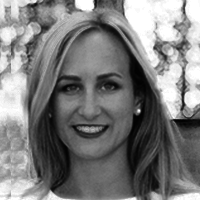The Value of Counseling Cochlear Implant Candidates & Referring To Specialists
AudiologyOnline: When did you first become familiar with cochlear implants and cochlear implant candidacy?

Dr. Shelley Borgia: I had been aware of implants for some time but only in the hospital setting. I wasn’t aware that we could work with them outside the hospital and within our practice. When I found out there was an opportunity to treat, diagnose and fit with implants, I wanted to get involved. I noticed that there are hearing losses that require more than a hearing aid and not knowing about cochlear implant treatment is a disservice to our patients.
You need to build a relationship with a doctor, someone who you will trust to do the surgery. Once we were able to find someone to work with, with the help of Cochlear, we were able to form that relationship and treat our patients better, which is helpful for the patient and us as their provider.
AudiologyOnline: What were some of the misconceptions you held before learning about CI and how to educate yourself?
Dr. Shelley Borgia: CIs were thought to be the last resort if the patient wasn’t doing well with different technology and hearing aids. That was the only time we’d have the CI discussion and refer on. But now, if the hearing aids are working okay but not great, and if the patient could do much better, we want to present all options to the patient. If they are struggling with comprehension and understanding with hearing devices, we don’t have to wait until their hearing is too severe. They can be offered help sooner with a CI.
AudiologyOnline: What would you say your primary motivation was when you decided to expand your service offering to include CI?
Dr. Shelley Borgia: We’ve been working so long in and around our community, and we’ve built such a rapport with our patients. When I can no longer assist or help my patient with what they need, that’s a problem. I noticed that some of my patients would get CIs from one center and then come to me for the adjustments of their hearing aid. For me, that wasn’t good enough.
I wanted to be able to treat both ears, both sides of their head and test, measure and have them walk out of my office hearing better after every visit. I wanted to program the CI and link it with a hearing device and answer all of their questions and support their needs. I couldn’t do that when only working with the hearing aid.
AudiologyOnline: Can you tell me a little more about the positive impact counseling CI has had on your practice as a professional and business owner?
Dr. Shelley Borgia: We can proudly say that we work with all options to manage hearing loss, and that does build quite the reputation. A patient can come in and understand that we offer everything from invisible technology to a medical implant and we are going to find the device that best suits them. It’s a great feeling to provide that level of service and care. Patients know they are sitting with an expert.
AudiologyOnline: Is word of mouth a big referral channel? Do you see CI as a differentiator that sends more hearing aid patients into your practice?
Dr. Shelley Borgia: Absolutely, we work with top surgeons in the area, and they have now learned about all the other services we provide, so they refer to us more often. Also, friends and family of patients are now aware that we provide another level of service.
We send emails and letters to our patients, letting them know we support CI. It is an added value to work with an amazing team of surgeons and experts who proudly say we are their CI center. For a private practice, having an affiliation with a top-tiered hospital is a privilege.
AudiologyOnline: We've heard Sycle has partnered with Cochlear to form The Continuum of Care Initiative. Has the CI integration helped to support your counseling efforts in your practice?
Dr. Shelley Borgia: The new CI integration has been amazing when I need a counseling tool or a brochure or a piece of information that I want to provide the patient. It’s so useful to have it in a convenient spot. We’re working with so many different people, so many different stories, it’s nice to just log on to Sycle and send information directly to a patient or show them what a CI can offer. It’s a powerful tool.
AudiologyOnline: What impact has supporting CI had on your patients who are candidates and/or recipients?
Dr. Shelley Borgia: It brings us closer to the patient, and the relationship is stronger - it’s nice to be involved in that journey with them. It’s so exciting to see how the CI changes their life and delivers the benefit the patient was looking for.
AudiologyOnline: What would you say to practices that don’t have CI on their radar? Is there an opportunity cost? Are they missing out?
Dr. Shelley Borgia: We’re always looking for a way to differentiate ourselves in our profession, especially now with the thought of hearing aids being available over the counter. Anything that we can offer that is specialized, that can help to support and improve hearing - why wouldn’t someone be interested?
This is our goal, our mission as hearing healthcare professionals - to diagnose hearing loss, protects the hearing patients have, and to treat any level of hearing loss that is detected. By being involved with cochlear implants, it’s only adding to our value and what we can do for patients.
AudiologyOnline: Has Cochlear been a good support network for you?
Dr. Shelley Borgia: It has been such a pleasure. We are so well supported by Cochlear. For any question or concern or patient interaction, they are there to help guide at each step of the way. If a patient is considering a CI but would like to talk with another recipient, Cochlear helps to make that connection. It’s a nice level of service we’re able to offer our patients. It’s a very big decision but if you’re a candidate there’s a true need to make a decision like this, and any support needed.
AudiologyOnline: There are all sorts of outlooks on CI and how it dovetails into traditional audiology and hearing aids. What would you tell a colleague that didn’t share your understanding of CI; someone who is worried referring to CI may hurt their business and hearing aid sales?
Dr. Shelley Borgia: If someone is worried that supporting or referring out to CI will hurt their business then they need to think again. We came into this industry to provide a service and provide the best hearing care we possibly can. If the thought process is short term -let me maximize my dollar for each ear- then the profit will also be short term.
If you think more long-term - expand my service offering to support CI- there is no loss of funds and your practice will grow.
For one, typically the CI recipient would be interested in treating both sides of their hearing, and we still fit a hearing device for that patient’s other ear. Furthermore, when you support CI, you quickly see successful CI recipients refer hearing aid patients because they’ve had a positive experience at your practice.
We’re able to bill for our services, so there’s no loss of income. Quite honestly, there’s only an opportunity to earn more. CI recipients can upgrade every few years, just like hearing aid recipients - there’s not a true difference.
You need to work off a system and address both sides. That in it of itself is another benefit. When other professionals notice that you provide another level of service and care, they’re more likely to refer to you. We’ve noticed that we get numerous referrals from professionals because we support CI, referrals that we didn’t have before.
AudiologyOnline: As you said earlier, one big misconception about CI is that it’s the last resort for hearing loss. It doesn’t have to be the last resort; sometimes it’s the next step. Do you see this understanding beginning to change amongst your peers? Do you see the industry realizing this is the next step and it depends on the individual patient’s needs and goals?
Dr. Shelley Borgia: I think that we need to talk about that more, quite honestly. There are a ton of audiologists reporting 9-5. They’re seeing each patient for x amount of minutes. I think that once you get out of the office and do work with like-minded professionals and go to continuing education courses - that’s when you learn and grow.
I don’t think that providers or audiologists that are working with just hearing aids are even visiting cochlear implant seminars and seeing how similar they are to hearing devices, especially for iPhone apps and phone clips and everything that is so similar and compatible with hearing devices. I don’t think there’s enough awareness of how streamlined this is. It’s really up to us as professionals to continue our education and stay informed about the technology, the changing candidacy criteria and most importantly, the goals of our patients.


